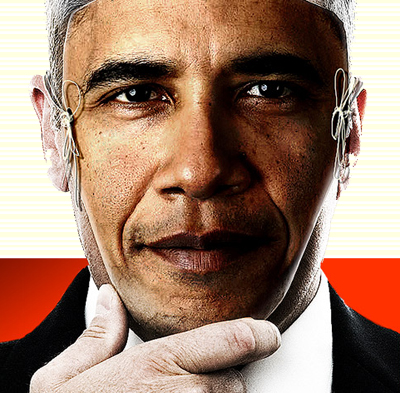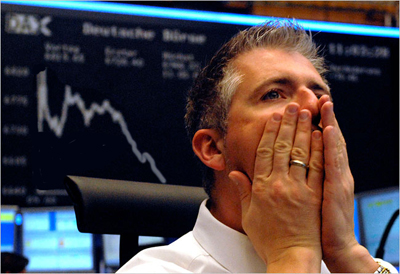 I think we need to face it: 2010 is more than a new year; it is also part of a new era in which all vestiges of normalcy and common sense have been left behind. In other words, it is a madhouse out there. Let me give you some examples of what I’m talking about.
I think we need to face it: 2010 is more than a new year; it is also part of a new era in which all vestiges of normalcy and common sense have been left behind. In other words, it is a madhouse out there. Let me give you some examples of what I’m talking about.
Example Number One:
In the world of anti-gun elitists, only common people are not allowed to defend themselves.
According to the Richmond (North Carolina) Times-Dispatch, “A sheriff says a North Carolina state senator shot one of two intruders at his home and hospital officials say the man is in fair condition.
“Multiple media outlets reported that Columbus County Sheriff Chris Batten said that 74-year-old Sen. R.C. Soles of Tabor City shot Kyle Blackburn late Sunday afternoon.”
According to the report, “Batten says the shooting occurred when two men went to the senator’s house and tried to kick in his front door. No charges have been filed.”
Now, don’t get me wrong. If the fellows were indeed breaking into his home, I’m glad the senator defended himself with a firearm. The miscreant deserved to be shot. Chalk up another one for the right to keep and bear arms. “What’s the problem?” you ask. The problem is, the good senator is one of the most anti-gun politicians in North Carolina. According to gun owners in NC, Soles has made a career out of opposing lawful gun ownership for the general public. In other words, in R.C. Soles’ world, his life is worth defending with a firearm, but your life or family (and mine) can go ahead and rot.
Soles is typical of Big-Government elitists who will allow themselves the luxury of all kinds of personal protection, while denying it for the common man. They hire professional bodyguards (does anyone remember Ted Kennedy’s personal bodyguard who was caught trying to take multiple loaded weapons–and over 100 rounds of ammunition–into the Capitol Hill building a few years back?); build exotic security fences and surveillance systems; and personally obtain firearm permits that are routinely denied the common person. Then they gladly take millions of dollars from gun control zealots to finance their Big-Government, anti-freedom agendas.
My question is, how does an elitist gun grabber like R.C. Soles get elected and reelected in the great State of North Carolina?
Example Number Two:
With little notice, President Obama has signed Executive Order (EO) 12425, which grants complete immunity to foreign police agencies, thereby allowing them to potentially arrest American citizens on US soil with no constitutional protections or considerations afforded those arrested. (This EO also effectively allows INTERPOL to successfully hide any and all potential information and evidence it has from the American public–including evidence of Obama’s birthplace.)
This action is so draconian and deplorable it is difficult to put in words.
According to the Washington Examiner, “Obama has given an international law enforcement organization that is accountable to no other national authority the ability to operate as it pleases within our own borders, and he has freed it from the most basic measure of official transparency and accountability, the FOIA [Freedom of Information Act].” See the story at: http://tinyurl.com/obama-frees-interpol
Of course, not only could US citizens be subjected to unconstitutional treatment at the hands of foreign governments operating freely on American soil, how do we know that our own federal government would not use foreign police organizations to do their dirty work for them? The answer is, we don’t.
The fact is, this new executive order makes it even more convenient for already overreaching federal police agencies to bypass and ignore constitutional protections for the American citizenry. Good grief! Under this EO, they would not even be required to submit to the Patriot Act, which, in itself, grants the federal government almost unlimited power to arrest, interrogate, and incarcerate just about anyone they want–with almost no constitutional accountability. But, now, this EO removes virtually every constitutional protection that may yet be intact by authorizing foreign police organizations to arrest and incarcerate American citizens at will–with ZERO accountability or oversight.
Of course, all of this is done in the name of fighting terrorism, which leads to:
Example Number Three:
In order to fly commercially, the American people are now being required to remove not just their shoes–but also their clothes.
After the failed Christmas Day terrorism attempt on a Delta flight approaching Detroit, Michigan, the Transportation Security Administration (TSA) is planning to spend $25 million of “stimulus” funds to install 150 new full-body scan machines in airports around the country. This is in addition to the 40 full-body machines that are already in use.
Make no mistake about it: when you step into a full-body scan machine, you are being undressed in front of the screener. Do you really want TSA agents gawking at the nude body of your wife and daughters? And speaking of daughters, will someone please explain to me why these TSA agents are not guilty of watching child porn? After all, they are spending all day long looking at nude bodies–including the nude bodies of little children! If you did this, you would be arrested, incarcerated, and required to register as a sex-offender for the rest of your life. Yet, TSA agents will now be allowed to look at the nude bodies of little children and get paid for it!
Furthermore, what is to prevent the agents from storing the naked images they look at and sharing them with their friends? After all, the peeper (screener) is housed in a private room, completely removed from the public.
Then there is also the question of the risk of radiation. Any amount of radiation can increase the likelihood of cancer, which is why most medical experts advise pregnant women and children to avoid the use of radiation machines altogether.
And as Bill Press asks, “What if it doesn’t work? What’s next? We already know. The latest terrorist plan is to plant explosives inside a body cavity and detonate the bomb with a cell phone. Experts admit that, had Umar Farouk Abdulmutallab done so, no full body-scanner would have picked it up.
“So that scary new greeting at airports . . . could get even worse: ‘Welcome to the Friendly Skies. Now take off all your clothes–and bend over.’ A full search of body cavities may be next on TSA’s list of ways to keep us safe. Still want to fly home for Mom’s birthday?” See Bill’s column at: http://www.wnd.com…
Think of it: we’ve spent nearly $100 billion on national security intelligence gathering, and yet, the federal government allowed this Abdulmutallab idiot–a foreigner commonly known to be a security risk–to board an American jetliner. (While at the same time, police agencies are instructed to be on guard against American citizens who may have voted for Ron Paul or Chuck Baldwin, or returning Iraq and Afghanistan war veterans.) But that’s just par for the course with the powers that be these days. They routinely allow people to fly into America from countries known to be sympathetic to terrorist organizations. Furthermore, our national borders are open sieves for virtually any and all illegal aliens. And just watch: it won’t be long into this new year before Barack Obama and John McCain join together in another push for amnesty for illegals. But now, you and I are being required to be electronically strip-searched when we want to board a commercial airliner.
Bill Press also makes a good point by comparing the “war on terror” with the war against drunk driving. He says, “Consider drunk driving. The best way to stop it would be to station a cop outside every bar to test every customer leaving the premises. No matter how much we abhor drunk driving, Americans would never tolerate that–even though drunk drivers killed 11,773 people in 2008. Only 876 people died worldwide in plane crashes.
“Same with airline security. We must accept the fact that there will always be risks. The idea that we have to choose between safety and privacy is not only a false choice, it’s a dangerous one. For once we give up even the tiniest slice of our privacy, we’ll never get it back.” Amen.
Or, as Benjamin Franklin said, “They who can give up essential liberty to obtain a little temporary safety, deserve neither liberty nor safety.”
If we were really serious about making airline travel safer, we would immediately cease and desist from this incessant infatuation with meddling into the internal affairs of foreign countries, stop invading and occupying foreign countries, and stop our own State Department and CIA from sticking their noses where they don’t belong–which only serves to agitate the world against us. We’d stop giving out travel visas to people from countries sympathetic to terrorists; seal the US border–especially the southern border; and allow pilots, policemen, and any other citizen lawfully qualified to carry a firearm to carry those weapons on board the aircraft. (It was, after all, an American citizen–not an Air Marshal or other federal agent–that stopped and subdued Abdulmutallab.) But instead, we continue to push the envelope toward a police state. One could even get the idea that our federal government may actually want terrorists to enter our country and board our airplanes so that they might use them as an excuse to exact greater and greater acts of oppression upon the US citizenry.
“Oh, yeah! I’m way out of line!” (To quote Jay Leno.)
Like I said, it’s a madhouse out there. And it appears to me that the lunatics are running the asylum.

Chuck Baldwin - is a radio broadcaster, syndicated columnist, and pastor dedicated to preserving the historic principles upon which America was founded.
 Fed chairman Ben Bernanke is pouring it on with nonsense on top of nonsense. Please consider
Fed chairman Ben Bernanke is pouring it on with nonsense on top of nonsense. Please consider 
 Louis:
Louis: Louis James (Lobo Tiggre) - Senior Editor Metals Division
Louis James (Lobo Tiggre) - Senior Editor Metals Division






